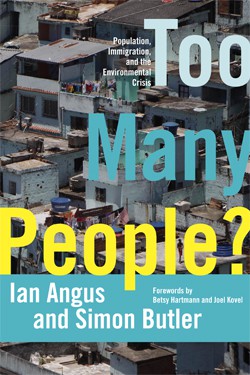Socialist Voice (Canada)
The Communist Women’s International (1921-26)

"Emancipated woman -- build up socialism." Poster by Strakhov-Braslavskij A. I., 1926.
By John Riddell
June 12, 2011 -- The following working paper was presented to the Toronto conference of Historical Materialism on May 16, 2010. It first appeared on John Riddell's blog and is posted at Links International Journal of Socialist Renewal with the author's permission.
* * *
When we celebrate International Women’s Day, we often refer to its origins in US labour struggles early last century. Less often mentioned, however, how it was relaunched and popularised in the 1920s by the Communist Women’s International. Moreover, this movement itself has been almost forgotten, as have most of its central leaders.
The Communist Women’s International was founded by a world gathering of communist women in 1921, which elected a leadership, the International Women’s Secretariat, reporting to the executive of the Communist International, or Comintern. It also initiated the formation of women’s commissions in national parties, which coordinated work by women’s bodies on a branch level, and called periodic international conferences of Communist women.
Honduras: Agreement signed for democratic rights
By Felipe Stuart Cournoyer and John Riddell
May 24, 2011 -- http://johnriddell.wordpress.com, posted at Links International Journal of Socialist Renewal with permission -- On May 22, Hondura's president Porfirio Lobo Sosa and former president José Manuel Zelaya Rosales signed an agreement 'For National Reconciliation and the Consolidation of the Democratic System in the Republic of Honduras".
Lobo was elected in November 2009 in a rigged vote organised by the regime installed through the June 28, 2009, military coup that overthrew Zelaya. The majority of Latin American and Caribbean nations refused to recognise the legitimacy of the Lobo government, despite the strong support it received from the United States and Canada.
The present agreement, finalised in Cartagena, Colombia, also bears the signatures of Colombia's President Juan Manuel Santos and Venezuela's foreign minister Nicolás Maduro (on behalf of President Hugo Rafael Chávez Frías) as witnesses.
This agreement opens the door to significant changes in the Central American political landscape and to the re-entry of Honduras into the Organization of American States (OAS) and SICA (Central American Integration System).
Canada’s election: NDP gains widen space for social struggles
By Roger Annis
May 23, 2011 – Links International Journal of Socialist Renewal, an earlier version of this article also first appeared in Green Left Weekly -- The incumbent Conservative Party sailed to victory in Canada’s federal election on May 2 with the first majority government in the federal parliament since the 2000 election. There was celebration in the boardrooms of the country. The victory caps a decades-long drive by much of Canada’s business elite to fashion a strong national government on a hard-right agenda.
The result is a deep disappointment for progressive-minded people in Canada. The Conservatives led by Stephen Harper will form the most right-wing government in modern Canadian history, extending the regressive path of its two minority governments won in the 2006 and 2008 elections.
Progress in Bolivia: A reply to Jeff Webber
Bolivia's president Evo Moral
Canada: NDP breakthrough in Quebec -- a challenge for the Canadian left

New Democratic Party leader Jack Layton.
By Richard Fidler
May 8, 2011 -- Life on the Left -- If New Democratic Party leader Jack Layton’s election-night speech to his Toronto supporters is an indication of what lies ahead, the NDP is going to have a hard time coming to terms with a parliamentary caucus now composed of a majority of MPs from Quebec.
To a crowded room in which nearly everyone was waving Canadian flags, the NDP leader delivered two-thirds of his remarks in English without ever mentioning the expression “Quebec nation”. The scene, televised across Canada, did not go unremarked in Quebec, where most of the NDP’s sudden support had come from nationalist-minded voters, including many sympathisers of Quebec independence.
Breaking the real taboo in the population debate

By Ian Angus
April 27, 2011 -- Climate and Capitalism -- Is there a taboo against attributing environmental problems to population growth? Are populationist views being suppressed?
Sir David Attenborough thinks so. On March 10, the noted naturalist and broadcaster told a meeting in London that there is a “strange silence … some bizarre taboo” about the population issue. This “absurd taboo” has “a powerful grip on the minds of so many worthy and intelligent people”. Attenborough urged his listeners to “break the taboo”, by raising the population issue whenever and wherever they could.
Who was he talking to? Who were the brave people who dared to listen to a talk on this forbidden topic? Was it some secretive group, hanging on despite all odds, somehow keeping alive the truths that are suppressed by the powers that be?
Well, no.
Montreal conference rallies support for rights of nature

By John Riddell
April 23, 2011 – Links International Journal of Socialist Renewal -- Bolivia marked Earth Day (April 22) this year by formulating the Law of Mother Earth, which—when adopted—will establish 11 new rights for nature, including the right not to be polluted and the right to continue vital cycles free from human interference.
On April 20, the United Nations General Assembly debated a proposal introduced by Bolivia, with support of other South American countries, to adopt a Universal Declaration of the Rights of Nature. The proposed global treaty says that “Mother Earth has the right to exist, persist, and to continue the vital cycles … that sustain all human beings”.
Meanwhile, Canada’s political and media establishment have organised an election campaign in which the world’s ecological crisis is barely mentioned.
‘Beyond capitalism’? Québec solidaire launches debate on its program for social transformation

Françoise David, QS president, and Amir Khadir, its sole elected member of the National Assembly.

Libyan rebels.
[For more left views on Libya, click HERE.]
By Art Young
April 4, 2011 – Links International Journal of Socialist Renewal – Two wars are being waged simultaneously in Libya. One has grown out of a revolutionary struggle for democracy; the other is an attempt by imperialism to strengthen its domination of the country. Both wars appear to share the goal of “regime change” but they stand at opposite ends of the political spectrum.
Canada: How can we aid Libya’s freedom movement?
Libyan Canadian shouts down with Gaddafi slogans outside Calgary City Hall, February 22, 2011. Photo by Ted Rhodes, Calgary Herald.
By John Riddell
February 28, 2011 -- Socialist Voice -- The brutal massacres of civilians in Libya at the order of the country’s dictator, Muammar Qaddafi, have shocked the world. His air force has carried out air strikes against unarmed civilians. On February 25, Qaddafi followers aimed murderous fire on anti-government protests in his last stronghold, Tripoli. The government declares its intention of reconquering the country in civil war.
What can those in Canada do to end the killings?
On February 26, the United Nations Security Council voted for sanctions against the Libyan regime, including an arms embargo and the freezing of assets of Qaddafi and his family. These measures are hardly more than cosmetic, serving to polish up great-power credentials.
The futility of green capitalism: Interview with Daniel Tanuro
January 17, 2011 -- Climate & Capitalism -- Daniel Tanuro’s new book, L’impossible capitalisme vert,or “The Futility of Green Capitalism”, is a major contribution to our analytical understanding of ecosocialism. Tanuro, a Belgian Marxist and certified agriculturist, is a prolific author on environmental history and policies.
Addressed primarily to the Green milieu, as the title indicates, this book is a powerful refutation of the major proposals advanced to resolve the climate crisis that fail to challenge the profit drive and accumulation dynamic of capital. Much of the book appears to be a substantially expanded update of a report by Tanuro adopted in 2009 by the leadership of the Fourth International as a basis for international discussion. That report was translated by Ian Angus and included in his anthology The Global Fight for Climate Justice.
Haiti: Diplomat delivers searing indictment of occupation regime

January 9, 2011 -- Socialist Voice -- Of all the commentaries and interviews coinciding with the anniversary of Haiti’s earthquake, none are likely to exceed in significance the interview granted by Organization of American States representative to Haiti, Ricardo Seitenfus, to the Swiss daily Le Temps on December 20, 2010.
The critique he delivered to the newspaper is especially significant for Latin America and the Caribbean because Seitenfus is Brazilian. Sensitivity is running high in the region over the evident failure of the international relief effort led by the big powers – the United States, Canada and Europe – whose interventionist policies had already done so much harm to Haiti before this latest catastrophe.